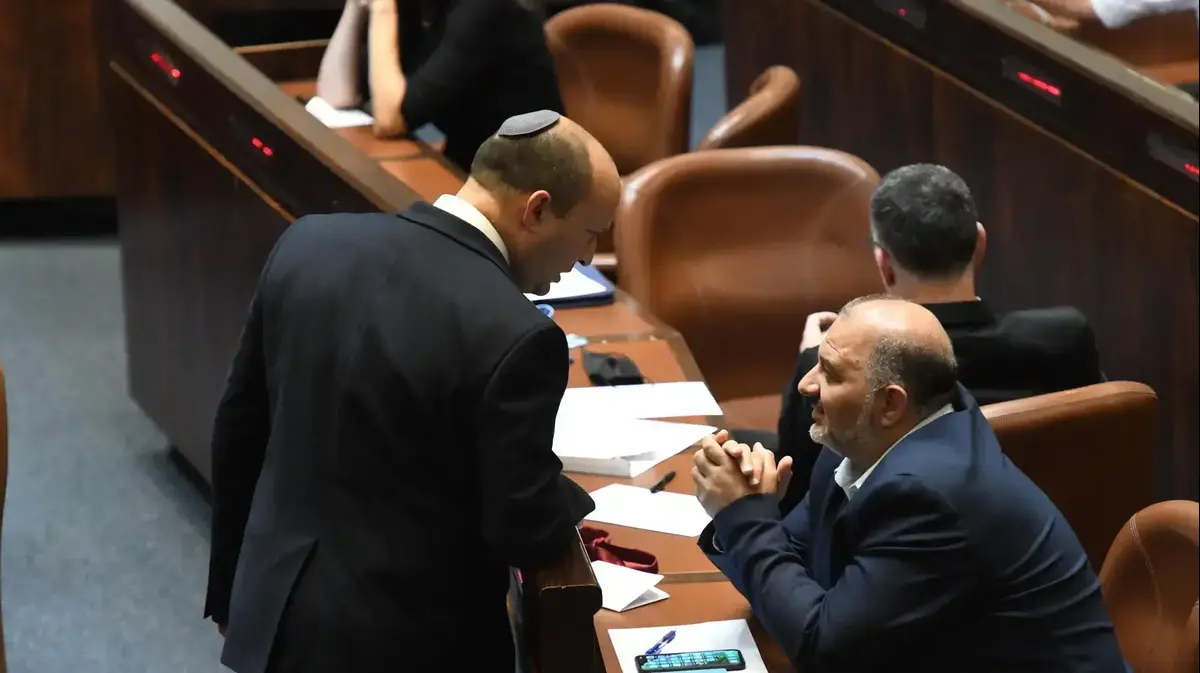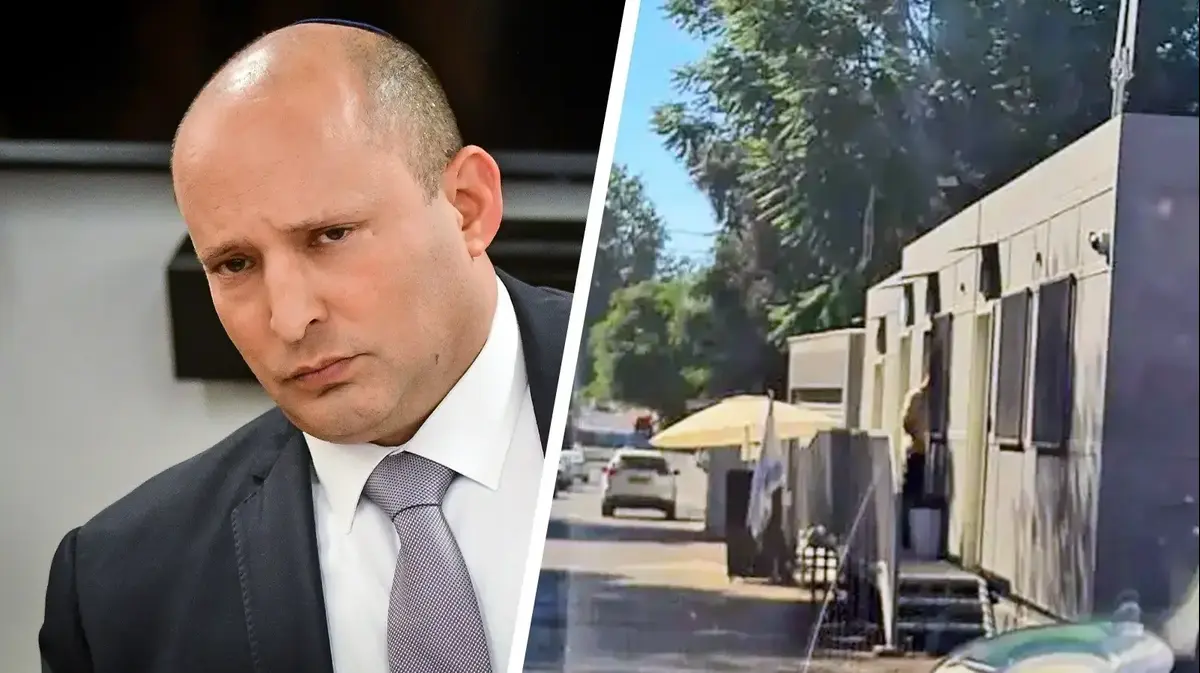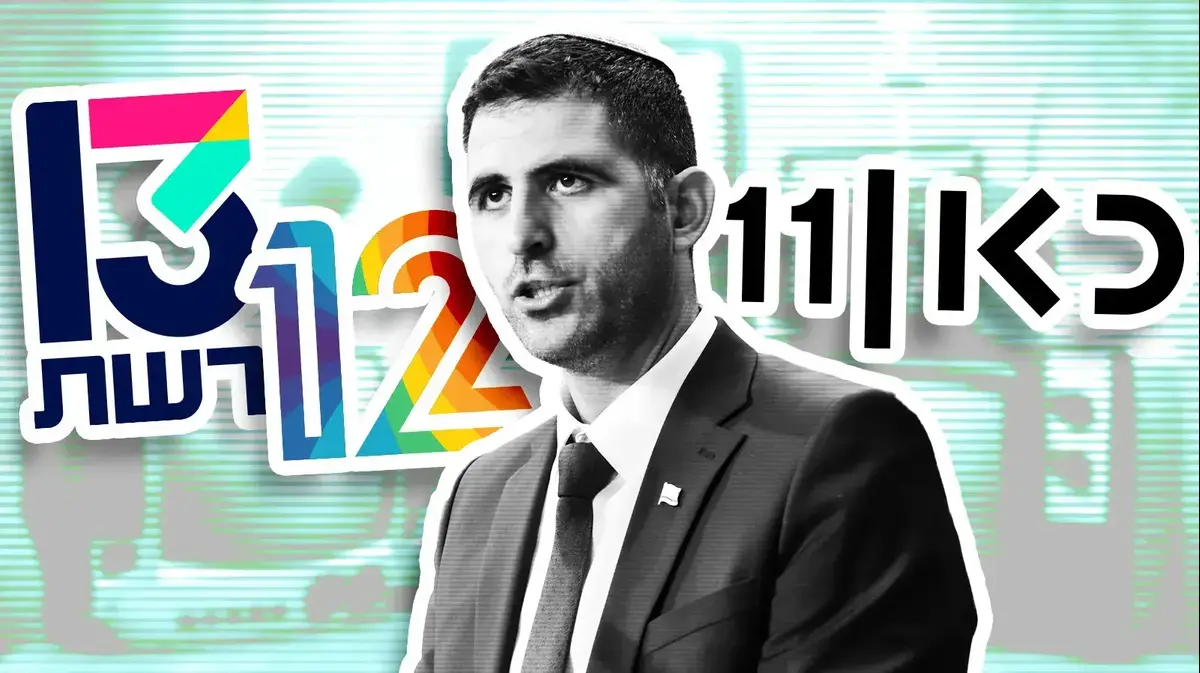news
Political-political
Prime Minister Bennett met with Abbas, Elkin and Shaked to reach agreements on approving the Family Reunification Law
Walla!
It was learned that the prime minister is taking part in the meeting, which is also attended by coalition leaders Silman and Toporovsky, in an attempt to reach an agreement on approving the law. The coalition did not rule out changes to the law to allow the support of RAM, Meretz and Labor without relying on opposition votes, but Shaked Opposes
Tags
Naftali Bennett
Ayelet Shaked
Mansour Abbas
Yaki Adamkar
Monday, 21 June 2021, 21:00
Share on Facebook
Share on WhatsApp
Share on general
Share on general
Share on Twitter
Share on Email
0 comments
Tonight (Monday), Prime Minister Naftali Bennett is attending a meeting with Interior Minister Ayelet Shaked, Minister of Construction and Housing Zeev Elkin, Chairman of the Prime Minister Mansar Abbas, in an attempt to reach an agreement in the coalition on approving the Family Reunification Law - Walla learned!
The meeting is also attended by coalition leaders Idit Silman and Boaz Toporovsky.
The coalition today did not rule out the possibility of changes to the wording of the law to allow the support of RAAM, Meretz and Labor without relying on the votes of opposition members. Ministers Yair Lapid, Bnei Gantz and Merav Michaeli expressed support for such a possibility. However, Interior Minister Shaked said she refused Changes in the law and despite the opposition's refusal to express support for the law, it estimated that the law would be approved by the plenum as the Likud and other right-wing factions would not oppose the law. Shaked did not rule out a future commitment to family reunification after the law was approved by the plenum.
More on Walla!
Without a guaranteed majority: The Citizenship Law is a first test for the coalition
To the full article
More on Walla!
The opposition is threatening: we will oppose the Family Reunification Law;
Gantz to Netanyahu: "Security over politics"
Will try to reach agreements on the law.
Bennett and Abbas, last week (Photo: Reuven Castro)
The coalition faces a significant test in the form of the controversial law, a week and a day after the Bennett-Lapid government was formed.
The Citizenship and Entry into Israel Law, the law that actually prohibits family reunification, is expected to receive Knesset approval by July 6, otherwise it will expire.
So far no majority has been found for him, in light of the opposition of members of the RAAM faction and some members of the Meretz and Labor factions.
For 18 years, Israeli governments have been extending the law, which aims to limit citizenship or residency to Palestinians married to Israeli Arabs. 2003, when the second intifada was enacted in the background, with the aim of imposing restrictions on the granting of citizenship or residence permits in Israel to Palestinians who married Israelis, as well as to citizens of Iran, Lebanon, Syria and Iraq seeking family reunification status. Yishai, at the end of March 2002.
Refuses to make changes to the law.
Shaked, last week (Photo: Reuven Castro)
Talks are underway between the parties in the coalition about changes in the format of the law. For example, one opponent of voting for an extension of the law, MK Ibtisam Marana (Labor), wants to allow Palestinian spouses to drive in Israeli territory, allow them to receive state health insurance, and grant citizenship to 2,000 families who applied for reunification before the law was enacted. 2003. If the coalition agrees to such changes, it is likely that the rest of its opponents will express support for it, but it will be a significant concession that may paint its right and new hope as compromises on security issues.
For years, Knesset members of right-wing parties have voted in favor of the law, arguing, among other things, that it is a "switch to reduce terrorist attacks" and security considerations.
Now, in the shadow of the political situation that has arisen, the opposition parties are considering opposing the law to embarrass the current government.
In doing so, the opposition hopes to prove that a coalition composed of Mansour Abbas' party, Meretz and other right-wing parties cannot exist, as the gaps between them are too great to bridge.
However, the dilemma of Knesset members on the right side of the map lies in the question of whether their opposition may harm them more than harm the government.
Share on Facebook
Share on WhatsApp
Share on general
Share on general
Share on Twitter
Share on Email
0 comments









